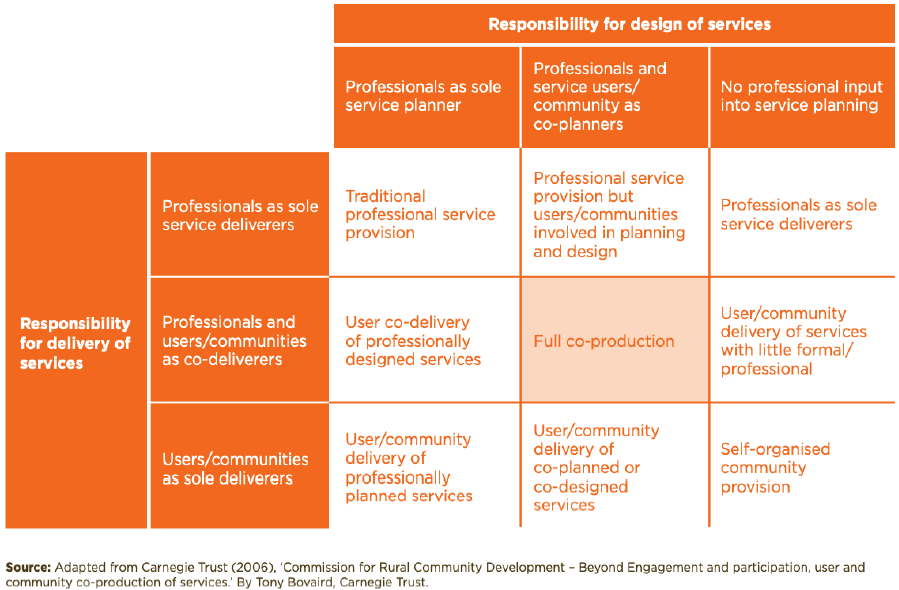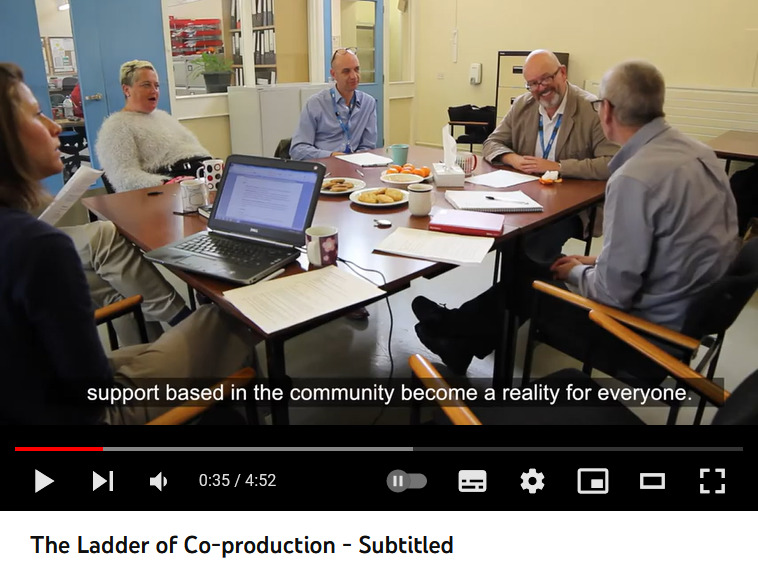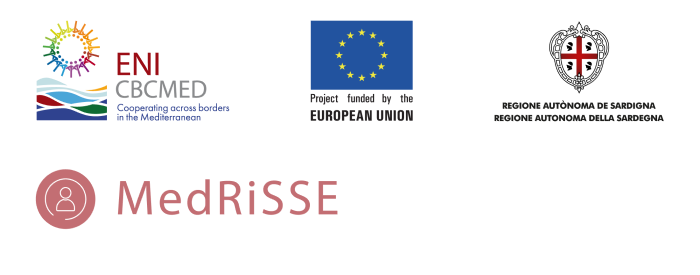Although there are a huge variety of co-production initiatives, they can be organised at three levels[iv]:
- Compliance (descriptive): Co-production takes place at the stage of service delivery, as carers and people who use services collaborate to achieve results. People using services make contributions at each stage of service provision, but they are not involved in its implementation. Despite the awareness that care services cannot be produced without input from the people who use services, the compliance tier offers little opportunity for real change by or for the people who use services because it is about complying with an existing regime.
- Support (intermediate): The intermediate level of co-production recognises and values the many people who come together to co-produce care services. It acknowledges the input and value of service users, utilises existing support networks and improves channels for people to be involved in the shaping of services. It may include new or more involved roles for users in the recruitment and training of professionals and managers. Also, it may see responsibilities being shared with the people who use services.
- Transformation: The most effective methods of co-production can transform services and create new relationships between the people who use them and the staff. This transformative level of co-production takes “a whole life focus”, incorporating quality of life issues as well as simply clinical or service issues.

At this stage, the service user becomes an expert. Professionals and people who use services and their carers come together to identify and manage risks. There must be trust and respect on both sides. To reach this stage there must be reallocation of power and control through user-led planning, delivery, management, empowerment and governance and collaboration must be entrenched. It often requires organisational change.

